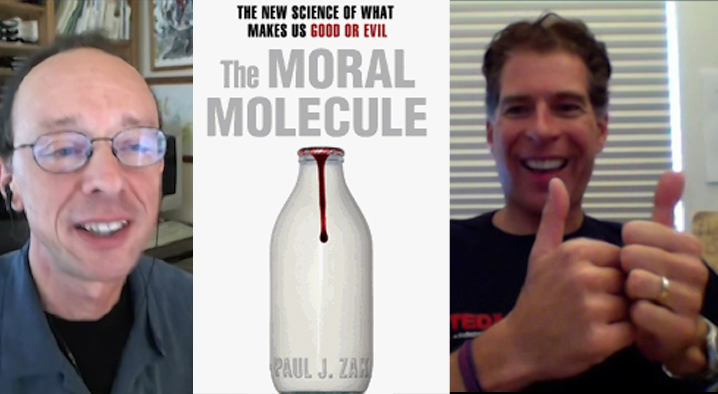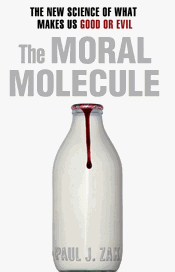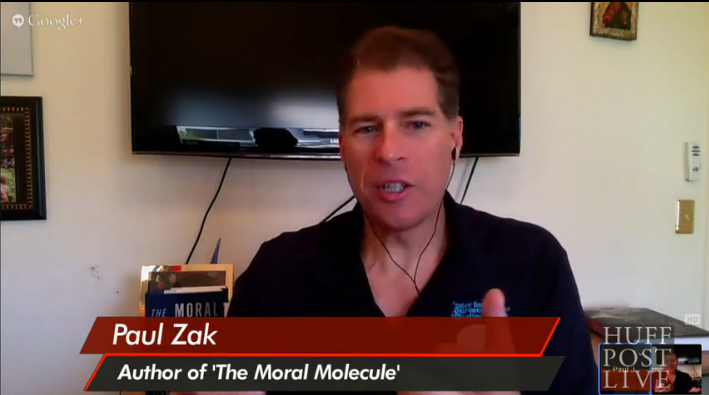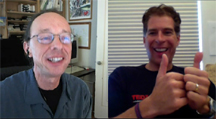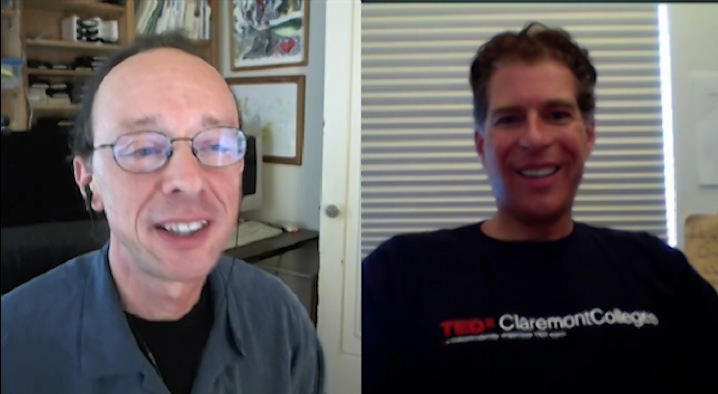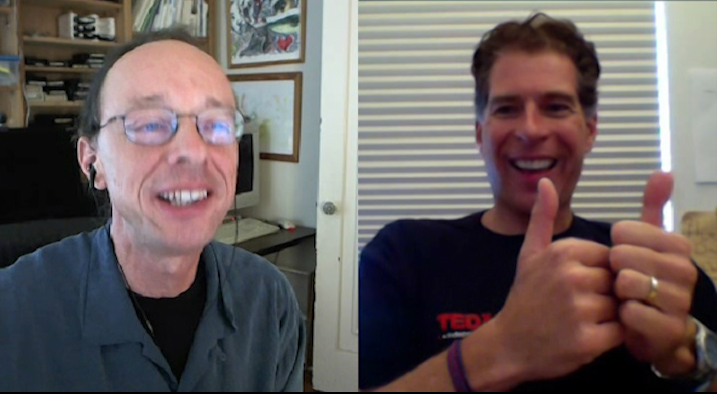|
|
|
Culture of Empathy
Builder: Paul Zak
How to Build a Culture of
Empathy with Oxytocin
Paul J. Zak is Professor of Economics and Department
Chair, as well as the founding Director of the Center for Neuroeconomics
Studies at Claremont Graduate University. He is author of: The Moral
Molecule: The source of love and prosperity which explores the
relationship between Oxytocin, empathy, compassion, trust, etc. "The Moral
Molecule is a first-hand account of the discovery of a molecule that makes
us moral. It reveals that compassion [and empathy] is part of our human
nature, why loneliness can kill you, and why your neighbor may be a
psychopath."
Paul Zak & Edwin
Rutsch: Dialogs on How to Build a Culture of Empathy with Oxytocin
How Oxytocin Boosts Our Empathy And Morality (VIDEO
"In his book "The
Morality Molecule: How Trust Works," Zak
writes about oxytocin, the "love hormone," and the powers it holds over
human behavior. Zak joined HuffPost Live's Caroline
Modarressy-Tehrani to
explain the mechanics of oxytocin's effect on our relationships.
"As social creatures, we need some sort of signaling molecule that says,
'You're safe to be around, I can interact with you,'" he said. "Oxytocin
motivates social interactions by reducing stress levels, and it actually
improves our immune system, so we get these very subtle signals that you
are part of my tribe or my family, so I can affiliate with you.""
2012-10-01 - Empathy, Neurochemistry, and the Dramatic Arc
On Youtube: Empathy,
Neurochemistry, and the Dramatic Arc: Paul Zak at the Future of
StoryTelling 2012 "The emotionally
charged story recounted at the beginning Dr. Paul Zak’s film—of a
terminally ill two-year-old named Ben and his father—offers a simple yet
remarkable case study in how the human brain responds to effective
storytelling. As part of his study, Dr. Zak, a founding pioneer in the
emerging field of neuroeconomics, closely monitored the neural activity
of hundreds of people who viewed Ben’s story.
2012-10-01 -
The Neurochemistry of Empathy, Storytelling, and the Dramatic Arc,
Animated
"This week, I’m headed to the Future of Storytelling summit,
an unusual cross-disciplinary unconference exploring exactly what it
says on the tin. Among the presenters is neuroeconomics pioneer Paul
Zak, director of the Center for Neuroeconomic Studies and author of The
Moral Molecule: The Source of Love and Prosperity. In this short film on
empathy, neurochemistry, and the dramatic arc, directed and edited by my
friend Kirby Ferguson and animated by Henrique Barone, Zak takes us
inside his lab, where he studies how people respond to stories."
Mr. Zak gives a lot more hugs than most economists. That is because he
has made a specialty of studying the social role of oxytocin, a
neurochemical once associated with sex that he says is also critical to
trust, empathy and family-like bonds. Oxytocin both fosters and feeds on
those behaviors, and can also be created by surmountable challenges,
dancing, singing, meditation or marching in a group.
10 May 2012 - The biochemistry of love and empathy
"In his latest book The Moral Molecule, neuroeconomist Paul Zak
describes oxytocin’s role in trust, bonding and even virtuous behaviour.
New Scientist caught up with him about avoiding the term “the cuddle
chemical” and trying not to make a bride faint on her wedding day..
Paul Zak: Trust,
morality -- and oxytocin?
7:00 "The change in
Oxytocin
predicted their feelings of empathy. So
it's empathy that makes us connect to other people.
It's empathy that makes us help other people. It's empathy that makes us
moral. This idea is not new." (Adam Smith talked about this as well).
Authors@ Paul Zak
on "The Moral Molecule"
Paul's new book, "The Moral Molecule" 3:57
2012-05-17 -
Can One Chemical Be the Basis of All Morality?
2012-05-00 -The biochemistry of love and empathy
2011-07-00 -
Paul Zak: Trust, morality -- and oxytocin
Horizon - Are You Good Or Bad Part 1
Oxytocin - Empathy,
BBC Horizon - Are you Good or Evil?
Introduction 1
Oxytocin - Empathy, Are you Good or Evil 2
Paul Zak, PhD, discusses the 'empathy' gene:
oxytocin
Social Networking Affects Brains Like Falling in Love
Others on Oxytocin
Oxytocin - The Chemistry of Love
|
|
||||






